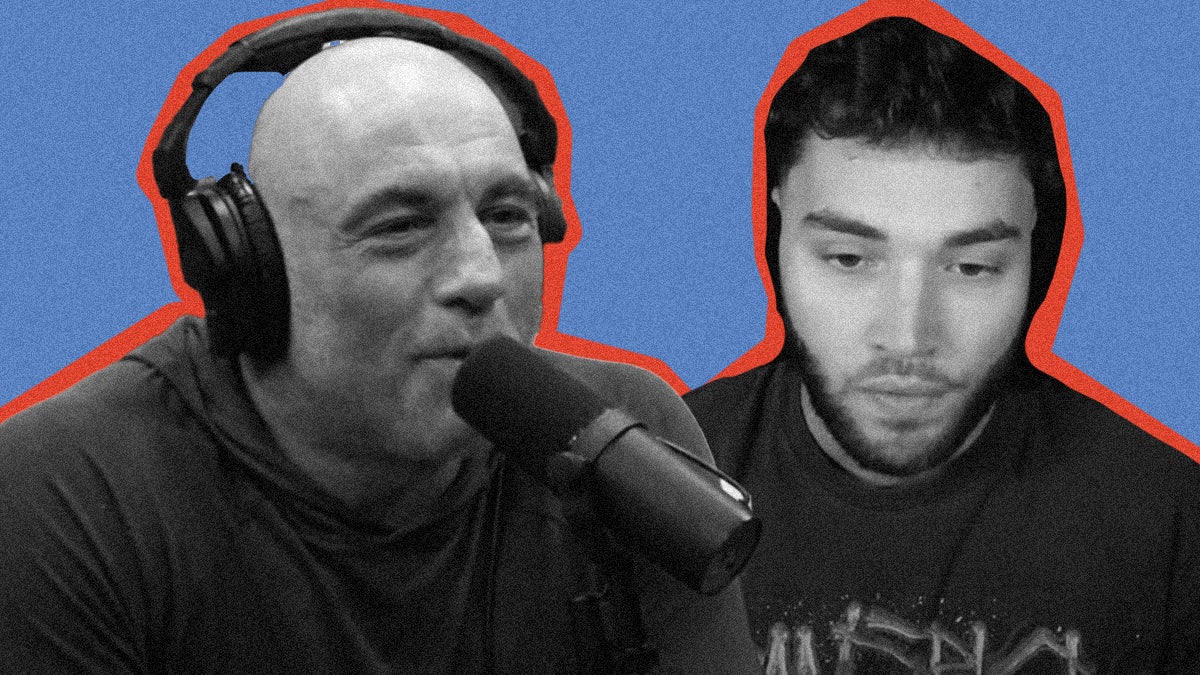
During Donald Trump’s election-night victory speech, UFC owner and Trump supporter Dana White thanked several people, including YouTubers the Nelk Boys, podcaster Theo Von, streamer Adin Ross, and podcaster Joe Rogan.
For those with little internet presence, these names might not be notable. But for the internet-addicted young men who helped carry Trump to four more years in the White House, this was a congratulatory shout-out. These internet edge lords with millions of followers — some who spew antisemitic conspiracy theories and make grand sweeping gestures and endorsements for Trump — are now some of the most powerful creators in American culture.
Though there is no clear single reason as to why Trump won the election, there’s no doubt that the internet and the chaos it evolved into fueled the anger of young men over the past decade and played a major role. According to exit polls, men between the ages of 18 and 29 shifted rightward by eight percentage points since the 2020 election, citing the economy as a top issue.
For Trump’s first election run in 2016, he tapped the right-wing politician Steve Bannon, who specifically acknowledged the untapped political potential of “intense” young male gamers as far back as the early 2000s, telling NY Mag that “these rootless, white males, had monster power.”
When Bannon took over right-wing news site Breitbart in 2012, he appealed to young, male anger by fueling the Gamergate movement. Gamergate was a right-wing conspiracy theory that claimed to fight ethics in games journalism, when in reality it was a Trojan Horse for building a movement against progressive ideologies in video games.
That template of targeting young white men, who have consistently begun to lose more power as more people and progressive ideologies entered the chat, has been one of the biggest driving forces of the Trump movement. It’s something that people plugged into the internet have seen growing since those Gamergate days.
At Passionfruit, I’ve covered the rise of the conservative gamer, the controversial (and childish) content of Adin Ross, as well as dozens of other stories about how right-wing creators are exploiting the frustrations of young men and rotting our social fabric. Complaints about Star Wars or Marvel making bad TV get shoehorned into the overall culture war, blaming bad writing or dialogue on the “woke mind virus.” That rhetoric becomes a slippery slope, leading young men down rabbit holes to more conservative voices like Charlie Kirk or Ben Shapiro.
But at other newsrooms I’ve worked with, getting anyone to care about internet culture journalism has proven to be a herculean feat. One editor at an outlet (that shall not be named) told me to “focus on more mainstream personalities” since those are the ones “that get clicks.”
Now those same mainstream voices are nothing but whispers compared to the shouts echoed from the manosphere, targeting young men who feel disenfranchised by record-high inflation, dwindling job prospects, and a political system that once told them they were great just for being born paler than the rest of us.
But Trump didn’t just win with young, white men, he also pulled in multiple demographics, including young Black and Latino men because they thought he’d be better for the economy. Listening to Trump gives a different story, with his plans to massively deport migrants and institute tariffs expected to negatively impact the financial state of the country.
Internet culture journalism is more important than ever. Online culture is just culture — the way we interact, speak, and live is now mainly through a glass screen we keep next to our car keys. The platforms that we exist on are controlled by tech oligarchs that have direct ties to the new government. Elon Musk’s tear down from Twitter to X allowed misinformation and right-wing conspiracy theories to run wild, even when they have no merit.
So in this timeline where things are feeling more hopeless than ever, I’m not giving up. I’ll continue to dig through the internet’s murky depths to explain how we ended up in this mess and what we can do to move forward. I’ve learned that while the internet is capable of empowering great evil, it also allows us to band together to make a change. And we need change more than ever that isn’t fueled solely by angry white men.
Further reading:
- Handling a Trump Presidency
- Donald Trump’s Chronically Online A-Team Explained
- Creators React to Election Results
- How Alternative Media Failed to Change Political Coverage
- Do you want more coverage of the creator ecosystem? Sign up for our newsletter.




